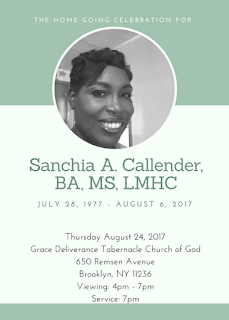Government Estate Planning
Repost from Autism Attitude: ABLE 2.0
In 2014 Congress passed the ABLE Act enabling families of disabled children to save for long term care expenses for their children without penalty. ABLE qualifying accounts are tax exempt and do not count against individuals when applying to government programs. As expected the ABLE Act 2014 comes with some strings attached. There are saving and spending limits for qualifying accounts as well as penalties for funds used for unapproved expenses.
In 2014 Congress passed the ABLE Act enabling families of disabled children to save for long term care expenses for their children without penalty. ABLE qualifying accounts are tax exempt and do not count against individuals when applying to government programs. As expected the ABLE Act 2014 comes with some strings attached. There are saving and spending limits for qualifying accounts as well as penalties for funds used for unapproved expenses.
Now a bipartisan update to the original 2014 version
of the ABLE Act, called ABLE
2.0 is in the works. The idea of ABLE 2.0 is to transform the current ABLE
Act 2014 into what would essentially be government run estate planning.
The ABLE 2.0 package includes three bills. The ABLE to Work Act allows individuals and families to save more money — up to the federal poverty level — in their accounts if the beneficiary works and earns income. The ABLE Financial Planning Act allows families to roll over savings in a 529 college savings plan into an ABLE account and prevents these funds from being trapped or fined if a child is born with a disability or acquires one later in life. The ABLE Age Adjustment Act raises the age limit for ABLE accounts from 26 to 46, helping people whose disability or disease develops later in life.
Some are excited about this development, “Let’s
enable parents of special-needs kids to set money aside for lifetime care”
believing that it will open up estate planning to the less “well-to-do.”
In the past, this kind of long-term disability planning generally required complicated and expensive trusts, and was thus the sole province of the well-to-do.
On its face, ABLE 2.0 looks to be a good development
for Americans with disabilities allowing families to save more, be more
flexible with how they save, and recognizing that disability can happen at any
time during the life span. Having utilized government programs designed to help
the poor and the less “well-to-do” I’m cautious about extending more government
control over the finances of individual Americans than it already has.
Government programs like this tend to become bloated, difficult to access, and
are more of a burden than a help.
Americans can already do what ABLE 2.0 proposes to
help Americans do. Having gone through the “complicated and expensive” process
of setting up a trust it isn’t that complicated. It did cost and it was worth
every penny we saved to pay for the process. I recommend every family with
disabled loved ones research their estate planning options before tying
themselves to government options. Go to a free legal clinic for advice on how
to get it done. Check the local library for resources on estate planning. There’s
always google as well. Estate planning doesn’t have to be the “sole province of
the well-to-do” in the information age.


Thanks for sharing this nice and interesting information about the estate planning which is knowledgeable.
ReplyDeleteCalifornia Advance Healthcare Directive
Durable Power of Attorney in California
Last Will and Testament Attorney
Estate Planning Attorney In Los Angeles